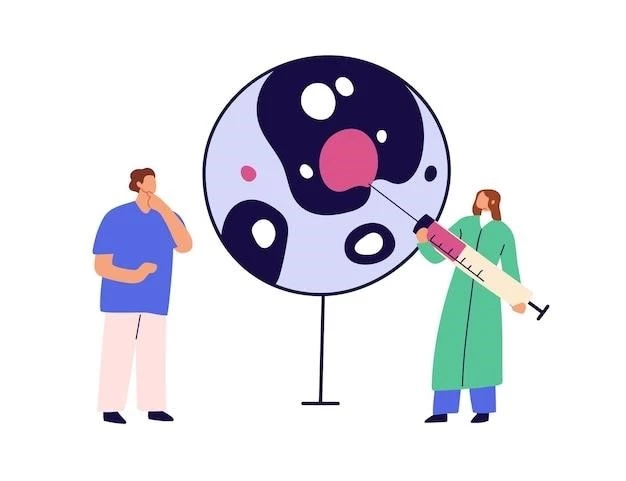Phenobarbital embryopathy is a rare condition that affects fetal development when the mother takes phenobarbital. Learn more about its symptoms, causes, and treatment options.
Phenobarbital embryopathy is a teratologic disorder caused by exposure to phenobarbital in the first trimester of pregnancy. This condition can lead to a range of symptoms including intellectual disabilities, tetralogy of Fallot, and unilateral cleft lip. It is crucial to understand the risks associated with this condition and seek appropriate medical guidance.
Description and Symptoms
Phenobarbital embryopathy is a rare teratologic disorder resulting from intrauterine exposure to phenobarbital, with symptoms including intellectual disabilities, tetralogy of Fallot, and unilateral cleft lip. Seek medical advice for appropriate management.
Intrauterine Exposure
Phenobarbital embryopathy stems from intrauterine exposure to phenobarbital during early pregnancy. While infants may appear asymptomatic, the risk of developing serious conditions like intellectual disabilities and congenital heart defects necessitates vigilant monitoring and medical care.
Causes of Phenobarbital Embryopathy
Phenobarbital embryopathy is primarily caused by intrauterine exposure to phenobarbital during the first trimester of pregnancy. It is vital to be aware of this risk and seek medical advice.
Identifying Risk Factors
Being informed about the risk factors associated with phenobarbital embryopathy, including intrauterine exposure to phenobarbital in the first trimester of pregnancy, is crucial for early detection and management. Consult healthcare providers for further guidance.
Symptoms of Phenobarbital Embryopathy
Phenobarbital embryopathy can manifest with a range of symptoms including intellectual disabilities, tetralogy of Fallot, and unilateral cleft lip. Early detection and medical intervention are vital.
Intellectual Disability and Physical Abnormalities
Phenobarbital embryopathy can result in a range of outcomes, from intellectual disabilities to physical malformations such as tetralogy of Fallot and unilateral cleft lip. Recognizing these symptoms early can lead to appropriate interventions and support.
Treatment Options for Phenobarbital Embryopathy
Managing developmental challenges in phenobarbital embryopathy is crucial. Explore treatment options with healthcare providers to address intellectual disabilities and physical abnormalities effectively.
Managing Developmental Challenges
Effective management of phenobarbital embryopathy involves addressing the developmental challenges that may arise, including intellectual disabilities and physical abnormalities. Collaborate with healthcare professionals to create a comprehensive treatment plan tailored to the individual needs of the affected person.
Support Groups for Phenobarbital Embryopathy
Connecting with support communities for Phenobarbital embryopathy can provide valuable information and emotional assistance. Interact with others facing similar challenges.
Community Resources and Networks
Accessing community resources and networks can provide invaluable support for individuals and families affected by phenobarbital embryopathy. These networks offer a platform for sharing experiences, obtaining information, and connecting with others facing similar challenges. Engaging with community resources can enhance the overall care and well-being of those impacted by this condition. Consider exploring these support systems to strengthen your knowledge and receive assistance in navigating the complexities associated with phenobarbital embryopathy.
Healthcare Providers for Phenobarbital Embryopathy
Consulting specialists and clinicians experienced in Phenobarbital embryopathy is crucial for effective management. Seek guidance from healthcare providers with expertise in this condition.
Specialists and Clinicians
Collaborating with specialists and clinicians familiar with Phenobarbital embryopathy is essential for tailored medical care and guidance. These experts bring valuable expertise and insights into managing this condition effectively.
Stay informed about the latest advancements in understanding Phenobarbital embryopathy through ongoing research studies. Consult reputable sources for updated information and insights.

Research on Phenobarbital Embryopathy
Staying updated on advancements in understanding Phenobarbital embryopathy through ongoing research is essential. Consult reliable sources for the latest insights and developments in this field of study.
Accessing disability benefits can aid individuals impacted by Phenobarbital embryopathy. Learn about financial support programs to assist with the challenges associated with this condition.
Financial Resources for Phenobarbital Embryopathy
Understanding and accessing disability benefits can offer crucial financial support for individuals affected by Phenobarbital embryopathy. Explore available programs to alleviate financial burdens associated with managing this condition.
Phenobarbital is utilized to control seizures and manage anxiety. It plays a role in preventing withdrawal symptoms in individuals dependent on other barbiturates.
Medication⁚ Phenobarbital Use
Phenobarbital is a medication used to control seizures and alleviate anxiety symptoms. It is also employed to prevent withdrawal symptoms in individuals dependent on barbiturates.
Phenobarbital may cause severe allergic reactions and serious side effects. Seek immediate medical assistance if signs occur.
Side Effects of Phenobarbital
Be aware of potential allergic reactions and serious side effects associated with phenobarbital use. Seek urgent medical attention if symptoms occur.
Phenobarbital acts on GABAA receptors, increasing seizure threshold and reducing seizure spread. It may also inhibit calcium channels, decreasing excitatory transmitter release.
Mechanism of Action of Phenobarbital
Phenobarbital’s mechanism of action involves targeting GABAA receptors, which enhances synaptic inhibition, elevating the seizure threshold and reducing seizure spread. Additionally, it may inhibit calcium channels, leading to a decrease in excitatory transmitter release.
For expert insights on Phenobarbital embryopathy, consult specialists actively contributing to research and advancements in this field.

Specialists in Phenobarbital Embryopathy Research
For expert insights on Phenobarbital embryopathy, consult specialists actively contributing to research and advancements in this field.
Understand causes, symptoms, and prognosis of Phenobarbital embryopathy linked to intrauterine exposure risks. Stay informed for effective management.
Antenatal Infection Information on Phenobarbital
Gain insight into the causes, symptoms, and prognosis of Phenobarbital embryopathy resulting from intrauterine exposure risks. Stay informed for effective management strategies.
